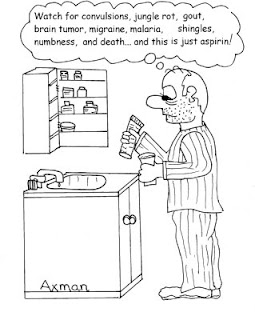When prostate cancer keeps coming back…
Logic, science, medical expertise, and common sense be damned; there comes a time when all that remains is faith, dumb luck, or magic.
So, we try the mud baths, salt water enemas, massive doses of Vitamin C or B, 20 cups of green tea each day, and even those hallucinatory mushrooms. And if it seems to work – even a little – we consider it a miracle.
When many types of cancer (such as prostate) come back after a shot or two at a cure, the rest of your time is spent being a ‘survivor’. “I’m still surviving; still alive.” That survival might be a few months or many years or somewhere in between.
If you want to know more about ‘miracle cures’ just go online. Google ‘non traditional cancer cures’ or ‘curing your own cancer’ or just ‘cancer cures’ and you’ll find hundreds of individual anecdotal miracles. “How Potato Peels Purified my Prostate” or “How Bungee Jumping Cured My Cancer.” Are any of these stories true? Is there any scientific evidence? Probably. Probably not. Maybe. Nobody knows. Everybody’s cancer is different from every body else’s.
Would I try a magical mystery cure? If the time and circumstances were right – yeah, probably.
Besides, I believe in magic.
axman




























 It is true that treatment (surgery, radiation, freezing, radioactive seeds) can lead to serious side effects. Most men who are diagnosed with prostate cancer do not die from prostate cancer. So is there any benefit in being diagnosed?
It is true that treatment (surgery, radiation, freezing, radioactive seeds) can lead to serious side effects. Most men who are diagnosed with prostate cancer do not die from prostate cancer. So is there any benefit in being diagnosed?